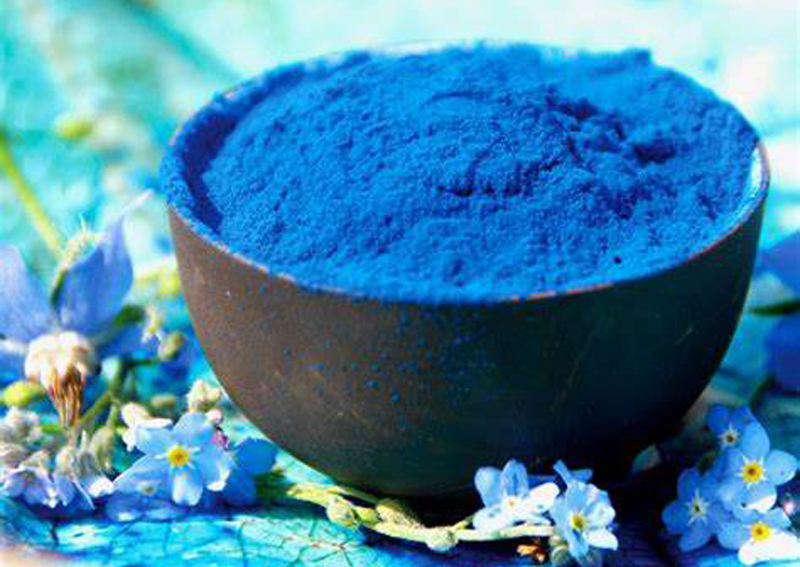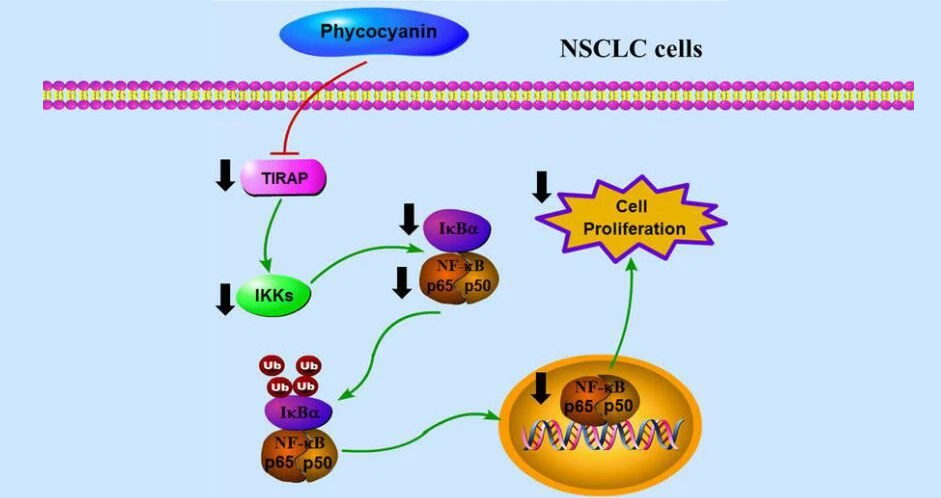Phycocyanin, a blue pigment-protein complex found in cyanobacteria (like spirulina), is generally considered safe for most people when consumed in moderation. It is often used for its antioxidant, anti-inflammatory, and potential anticancer properties. However, like any supplement or bioactive compound, it may cause adverse effects in some individuals. These include:
1. Allergic Reactions
- Some individuals may experience allergic reactions, including rash, itching, or swelling, especially if they are sensitive to spirulina or other cyanobacteria. Symptoms of an allergic reaction may include difficulty breathing, which would require immediate medical attention.
2. Gastrointestinal Issues
- High doses may cause gastrointestinal upset, including nausea, vomiting, bloating, or diarrhea. It’s advisable to start with small amounts and gradually increase intake to minimize the risk of digestive discomfort.

3. Interactions with Medications
- Blood Thinners: Phycocyanin may interact with anticoagulant medications (like warfarin), potentially increasing the risk of bleeding.
- Immunosuppressive Drugs: Phycocyanin may stimulate immune activity, which could interfere with medications designed to suppress immune function.
- Diabetic Medications: There is some evidence that spirulina (and by extension, phycocyanin) can lower blood sugar levels. People on diabetes medication should monitor their blood glucose levels carefully if using phycocyanin supplements.
4. Toxicity from Contaminants
- Phycocyanin is often extracted from spirulina, which can sometimes be contaminated with heavy metals or toxins like microcystins, particularly if the spirulina is harvested from contaminated water sources. These contaminants could lead to liver damage or other health problems, although this is rare with reputable sources of spirulina and phycocyanin.
5. Potential for Photosensitivity
- While rare, some individuals may experience photosensitivity (increased sensitivity to sunlight) when taking spirulina or phycocyanin. This could increase the risk of sunburn or other skin reactions.

6. Pregnancy and Breastfeeding
- There isn’t enough conclusive research to establish the safety of phycocyanin during pregnancy or breastfeeding. Therefore, it’s best to consult a healthcare provider before using it during these periods.
7. Autoimmune Conditions
- Since phycocyanin may have immune-boosting properties, individuals with autoimmune diseases (e.g., lupus, rheumatoid arthritis) should consult a healthcare provider before use, as it could potentially exacerbate symptoms by stimulating the immune system.
If you are considering using phycocyanin as a supplement, it’s advisable to consult with a healthcare provider, especially if you have any preexisting health conditions or are taking other medications.
